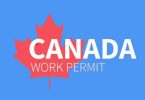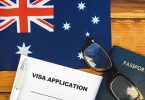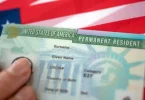Migrating to Canada through a marriage visa, also known as spousal sponsorship, is one of the most common and effective pathways for individuals to join their Canadian spouses and build a new life together in Canada. This article provides an in-depth guide on how you can navigate the spousal sponsorship process and successfully migrate to Canada.
Introduction to Marriage Visa for Canada
A marriage visa, also referred to as spousal sponsorship, allows Canadian citizens and permanent residents to sponsor their foreign spouses for Canadian permanent residency. This visa is intended for those who are legally married to or in a conjugal or common-law relationship with a Canadian resident or citizen.
Understanding Canadian Spousal Sponsorship
What is Canadian Spousal Sponsorship?
Spousal sponsorship is a pathway for Canadian citizens or permanent residents to bring their spouse to Canada as a permanent resident. It is part of Canada’s Family Sponsorship Program, which prioritizes reuniting families and allows sponsored individuals to enjoy the same rights and privileges as other permanent residents.
Eligibility Criteria for Sponsors
To sponsor a spouse, the sponsor must:
- Be a Canadian citizen or permanent resident.
- Be at least 18 years old.
- Not have a criminal record or any history of immigration violations.
- Not be receiving social assistance, except for disability reasons.
- Be financially capable of supporting their spouse in Canada.
Eligibility Criteria for Sponsored Spouses
The sponsored spouse must:
- Be legally married to the sponsor or in a recognized common-law or conjugal relationship.
- Meet basic health and security requirements.
- Provide proof of their relationship with the sponsor.
Types of Spousal Sponsorship in Canada
Inland Spousal Sponsorship
Inland sponsorship is for spouses already residing in Canada. With this route, the sponsored spouse may be eligible for an open work permit, allowing them to work while their application is being processed.
Outland Spousal Sponsorship
Outland sponsorship is typically used when the sponsored spouse is residing outside Canada. This route may also be faster, but travel restrictions can impact it.
Eligibility Requirements for Spousal Sponsorship
Relationship Requirements
Sponsors must provide evidence of a genuine relationship, which can include shared financial records, photos, and proof of joint travel.
Age and Residency Criteria
Both the sponsor and the sponsored spouse must be at least 18 years old. The sponsor must live in Canada or plan to return to Canada with the spouse.
Financial Requirements for Sponsors
Although there is no minimum income requirement for spousal sponsorship, the sponsor must demonstrate that they can support their spouse financially.
Step-by-Step Process for Spousal Sponsorship
Step 1: Gather Required Documents
Collect documents such as proof of relationship, identity verification, and financial statements.
Step 2: Fill Out the Application Forms
Accurately complete all required forms, as errors can delay the application process.
Step 3: Submit the Application Package
Send your completed application and all required documentation to the appropriate immigration office.
Step 4: Medical and Background Check
The sponsored spouse must undergo a medical examination and background check to ensure they meet Canada’s health and security standards.
Step 5: Interview (if required)
An interview may be requested to verify the authenticity of the relationship.
Documents Required for Canadian Marriage Visa
Proof of Relationship
This includes photos, shared financial records, communication logs, and other evidence showing your relationship’s legitimacy.
Identity and Residency Documents
Both parties must provide valid IDs, birth certificates, and proof of residency.
Financial Proof and Supporting Documents
Sponsors may need to provide financial records demonstrating their ability to support the spouse.
Processing Time and Fees for Spousal Sponsorship
Average Processing Times
Processing times vary but can range from 12 to 24 months depending on the type of sponsorship and other factors.
Sponsorship Application Fees
The application fees for spousal sponsorship currently stand at around CAD $1,050, with additional costs for medical exams and background checks.
Common Challenges in the Spousal Sponsorship Process
Proving a Genuine Relationship
Applicants must provide compelling evidence of a genuine relationship, which can be challenging if the couple has spent limited time together.
Delays Due to Missing Information
Incomplete applications or missing documents can result in significant delays.
Tips for a Successful Spousal Sponsorship Application
- Organize Your Documentation
- Ensure all documents are clear, accurate, and submitted in the proper order.
- Be Honest and Transparent
- Provide truthful information to avoid future complications and potential rejections.
- What to Expect After Applying for Spousal Sponsorship
- Receipt of Acknowledgment
After submission, applicants receive an acknowledgment letter and tracking number.
Updates on Application Status
Applicants can check the status of their application online using their tracking information.
Medical Examinations and Background Checks
Health Requirements
Canada requires all applicants to meet specific health standards, verified through a medical examination.
Security Clearances
A background check will assess any potential security risks, requiring a clean criminal record.
Interview Process for Spousal Sponsorship
Common Interview Questions
Questions often focus on the couple’s history, future plans, and relationship details.
Tips to Prepare for the Interview
Be prepared to answer questions honestly and provide consistent answers.
Benefits of Migrating to Canada with a Marriage Visa
Migrating through a marriage visa allows individuals to pursue permanent residency, access healthcare, and work opportunities, and live alongside their spouse in Canada.
Life in Canada After Migration
Rights and Responsibilities of New Residents
New residents gain access to healthcare, social services, and educational opportunities while being responsible for obeying Canadian laws.
Accessing Healthcare, Education, and Social Services
New residents enjoy full access to Canada’s universal healthcare, education system, and various social services.
Migrating to Canada with a marriage visa can be a fulfilling experience that brings families together. By following the necessary steps, gathering appropriate documentation, and preparing for potential challenges, you can increase your chances of a successful application and enjoy life in Canada alongside your spouse.
For more information, visit Canada.ca





